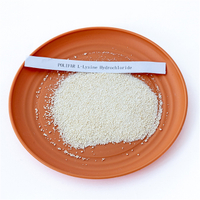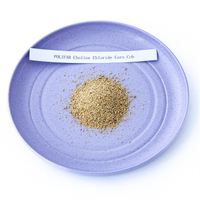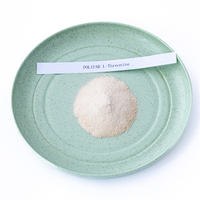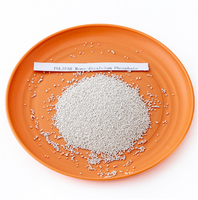| Availability: | |||||||||
|---|---|---|---|---|---|---|---|---|---|
| Color: White crystals Sales Models: wholesale Min Order: 10mt Shelf Life: Two years when properly stored Packing: Net 25kg/1000kg/1200kg in Plastic woven bags with PE lining Storage: stockpiled at the ventilated place, avoiding rain, moisture and insolation. Please handle with care to prevent bag damage, store away from toxic substances. | |||||||||
Zinc(Zn)/% ≥21
POLIFAR
283329
【Product name】: Zinc Sulphate crystal heptahydrate feed grade /fertilizer grade
【Chemical formula】: ZNSO4•7H2O
【CAS】: 7446-20-0
【Product performance】:
Feed grade zinc sulfate heptahydrate is often used as an animal feed additive to supplement animals’ zinc needs and promote animal growth and health. Its purity and heavy metal content are often more strictly regulated to ensure safety for animals and the environment.
Industrial grade zinc sulfate heptahydrate is usually used in industrial production, such as as a catalyst or raw material in metal processing, chemical industry and other industrial fields. Its purity requirements are generally lower, but it still plays an important role in specific industrial applications.
【Storage】: Stockpiled at the ventilated place, avoiding rain, moisture and insolation. Please handle with care to prevent bag damage, store away from toxic substances.
【Packing】: Net 25kg/1000kg/1200kg in Plastic woven bags with PE lining
【Loading】: 27MT/20FCL'; 25MT/20FCL' with pallets
【Shelf Life】: Two years when properly stored
【Product name】: Zinc Sulphate crystal heptahydrate feed grade /fertilizer grade
【Chemical formula】: ZNSO4•7H2O
【CAS】: 7446-20-0
【Product performance】:
Feed grade zinc sulfate heptahydrate is often used as an animal feed additive to supplement animals’ zinc needs and promote animal growth and health. Its purity and heavy metal content are often more strictly regulated to ensure safety for animals and the environment.
Industrial grade zinc sulfate heptahydrate is usually used in industrial production, such as as a catalyst or raw material in metal processing, chemical industry and other industrial fields. Its purity requirements are generally lower, but it still plays an important role in specific industrial applications.
【Storage】: Stockpiled at the ventilated place, avoiding rain, moisture and insolation. Please handle with care to prevent bag damage, store away from toxic substances.
【Packing】: Net 25kg/1000kg/1200kg in Plastic woven bags with PE lining
【Loading】: 27MT/20FCL'; 25MT/20FCL' with pallets
【Shelf Life】: Two years when properly stored
Testing Item | Standard | Result |
≥97.3 | 97.9 | |
Zinc(Zn)/% | ≥21 | 21.4 |
Arsenic (As)/% | ≤0.0005 | 0.0003 |
Heavy Metal (Pb)/% | ≤0.0010 | 0.0004 |
Cadmium(Cd)/% | ≤0.0010 | 0.0008 |
Water Insoluble/% | ≤0.05% | 0.018% |
Note: When a user with special requirements for fineness, negotiated by the supply and demand sides | ||
Q1: What is the difference between zinc sulfate and zinc sulfate heptahydrate?
A1: Zinc sulfate and zinc sulfate heptahydrate are two different forms of the same chemical compound, zinc sulfate. The key difference lies in their hydration states. Zinc sulfate heptahydrate is a hydrated form of zinc sulfate, meaning it contains seven water molecules (heptahydrate) per molecule of zinc sulfate. In contrast, zinc sulfate without the heptahydrate designation typically refers to the anhydrous form, which contains no water molecules.
The presence of water molecules in zinc sulfate heptahydrate affects its physical properties such as appearance, solubility, and stability. The heptahydrate form appears as white crystalline granules or powder and is more soluble in water compared to anhydrous zinc sulfate. The anhydrous form may appear as a white powder or colorless crystals. In applications such as agriculture and animal nutrition, the heptahydrate form is often preferred due to its higher solubility, making it easier to incorporate into feed formulations or dissolve in water for foliar application.
Q2: Is zinc sulfate heptahydrate safe?
A2: Yes, zinc sulfate heptahydrate is generally considered safe when used according to recommended guidelines. It is commonly used in various applications, including agriculture, animal nutrition, pharmaceuticals, and water treatment.
In animal nutrition, zinc sulfate heptahydrate is often added to feed formulations to meet the dietary zinc requirements of livestock and poultry. When used at appropriate levels, it can help maintain animal health, support growth and development, and prevent zinc deficiency-related issues.
However, as with any chemical substance, it's essential to handle zinc sulfate heptahydrate with care and follow proper safety precautions during handling, storage, and usage. Overexposure or ingestion of large amounts may lead to adverse effects, including gastrointestinal upset. Therefore, it's crucial to adhere to recommended dosage levels and consult with experts or regulatory guidelines to ensure safe and effective use in various applications.
Q1: What is the difference between zinc sulfate and zinc sulfate heptahydrate?
A1: Zinc sulfate and zinc sulfate heptahydrate are two different forms of the same chemical compound, zinc sulfate. The key difference lies in their hydration states. Zinc sulfate heptahydrate is a hydrated form of zinc sulfate, meaning it contains seven water molecules (heptahydrate) per molecule of zinc sulfate. In contrast, zinc sulfate without the heptahydrate designation typically refers to the anhydrous form, which contains no water molecules.
The presence of water molecules in zinc sulfate heptahydrate affects its physical properties such as appearance, solubility, and stability. The heptahydrate form appears as white crystalline granules or powder and is more soluble in water compared to anhydrous zinc sulfate. The anhydrous form may appear as a white powder or colorless crystals. In applications such as agriculture and animal nutrition, the heptahydrate form is often preferred due to its higher solubility, making it easier to incorporate into feed formulations or dissolve in water for foliar application.
Q2: Is zinc sulfate heptahydrate safe?
A2: Yes, zinc sulfate heptahydrate is generally considered safe when used according to recommended guidelines. It is commonly used in various applications, including agriculture, animal nutrition, pharmaceuticals, and water treatment.
In animal nutrition, zinc sulfate heptahydrate is often added to feed formulations to meet the dietary zinc requirements of livestock and poultry. When used at appropriate levels, it can help maintain animal health, support growth and development, and prevent zinc deficiency-related issues.
However, as with any chemical substance, it's essential to handle zinc sulfate heptahydrate with care and follow proper safety precautions during handling, storage, and usage. Overexposure or ingestion of large amounts may lead to adverse effects, including gastrointestinal upset. Therefore, it's crucial to adhere to recommended dosage levels and consult with experts or regulatory guidelines to ensure safe and effective use in various applications.








